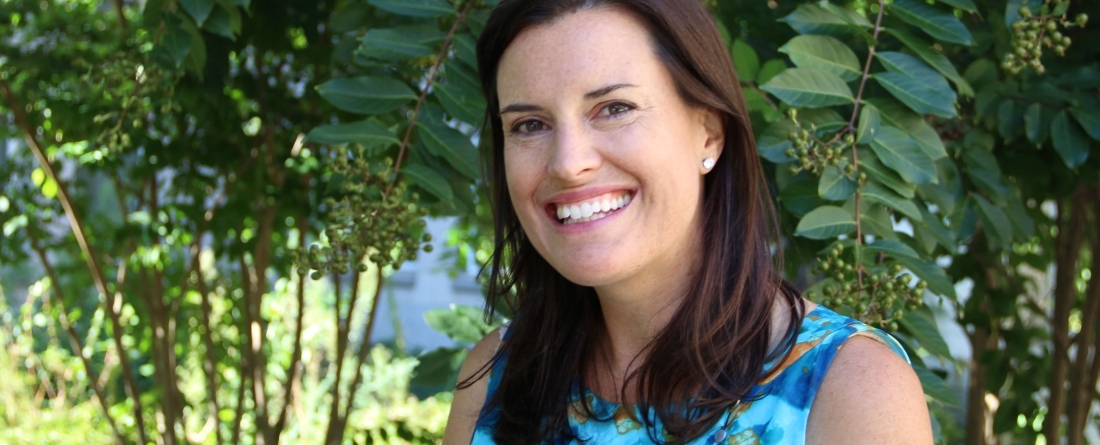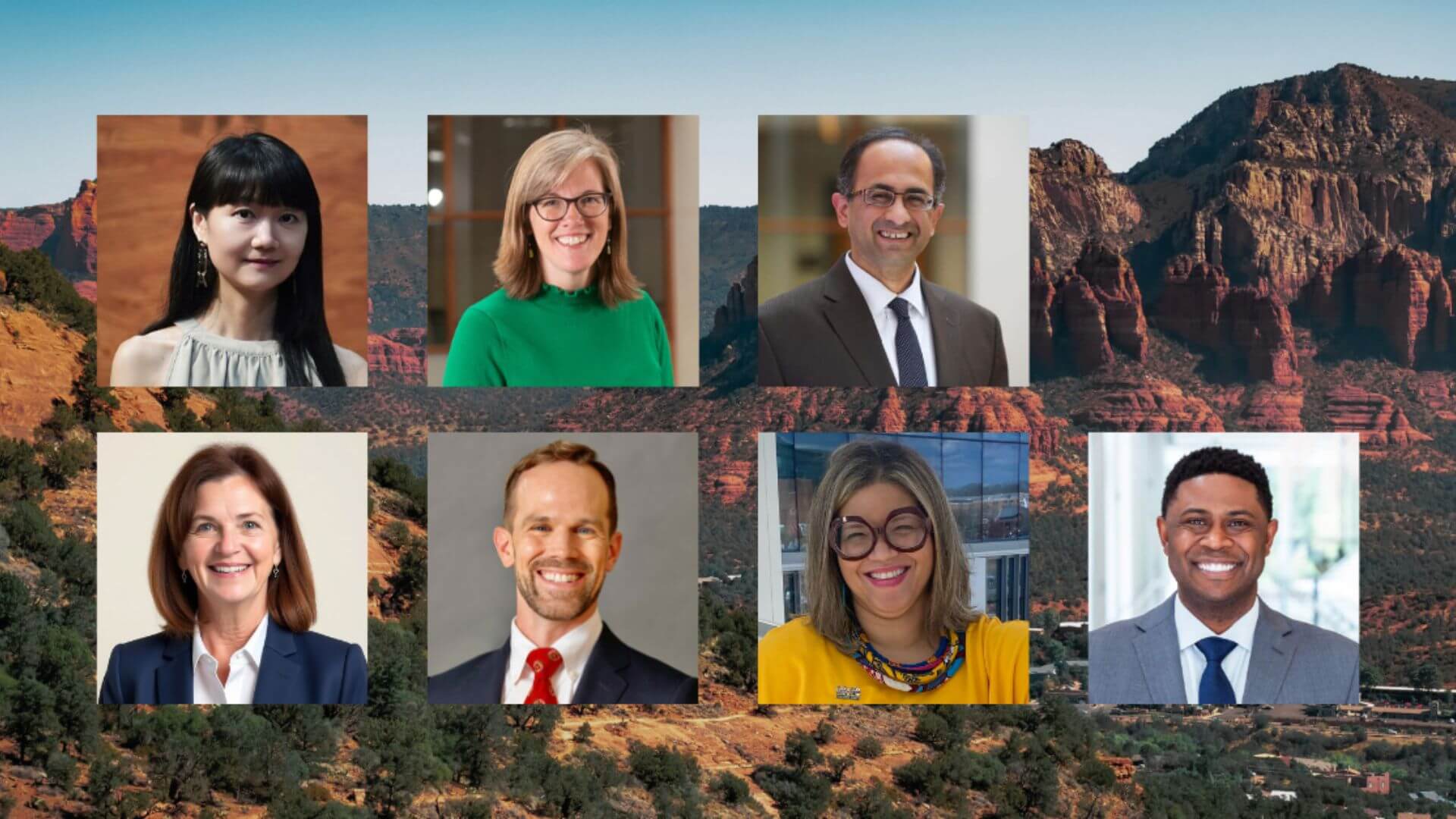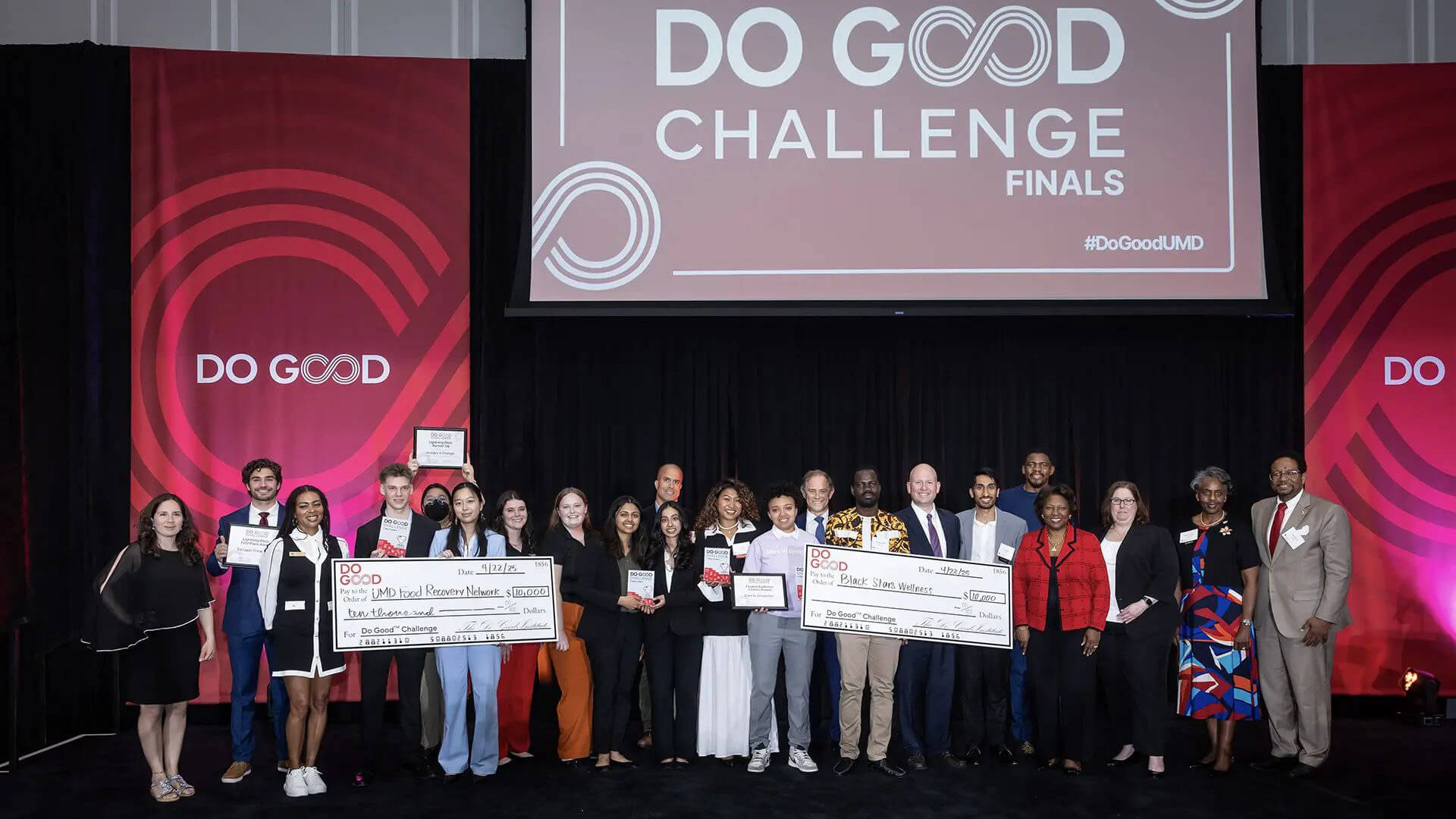
Susannah Washburn, currently a lecturer at the University of Maryland School of Public Policy who directs the iGIVE program, always thought she’d be a policy practitioner, and then she fell in love with academia.
Washburn’s interests include youth development, youth activism, national and community service programs, philanthropy, nonprofit management, social entrepreneurship, leadership studies and organizational behavior. In 2001, she became chief of staff for the Corporation for National and Community Service (CNCS), a federal agency with an annual budget of more than $1 billion, funding some of the nation's top nonprofits including the American Red Cross, City Year and Teach for America.
“It was fascinating to work with the West Wing, Congress, OMB and our hundreds of grantee organizations,” Washburn says. “It was a delicate dance to manage the competing priorities and personalities while driving both the administration’s and the agency’s mission. The hardest part was developing the annual budget because sometimes an administration’s budget needs are not aligned with the needs of the agency.”
Among Washburn’s proudest accomplishments at CNCS was leading a team to revise the regulations for AmeriCorps. Among the new regulations: requiring grantees to make progressively higher financial contributions over the life of a grant and requiring large grantees to conduct third party program evaluations. “The changes to the regulations were the beginning of the movement at CNCS toward a greater emphasis on impact,” Washburn says.
After President Barack Obama was elected in 2008, Washburn was tapped, along with Robert T. Grimm, Jr., who is now a School of Public Policy professor of the practice and director of the School’s Do Good Institute (formerly the Center for Philanthropy and Nonprofit Leadership), to launch the new Social Innovation Fund, created through the Serve America Act. Washburn worked closely with the White House and the nonprofit and philanthropic sectors to set the fund's strategic priorities. To date, the Social Innovation Fund has provided $243 million in grants to intermediary organizations that identify promising nonprofits focused on economic opportunity, health and youth development.
“The Social Innovation Fund changed my career because it gave me the opportunity to meet social entrepreneurs with a relentless focus on results,” she says. “Their commitment and drive inspired me and really got me thinking about the need for government to do a better job investing resources in interventions that work. Investing in what works sounds like common sense, but the current budget process favors the status quo over a rigorous analysis of what works."
Washburn’s work on the Social Innovation Fund got her noticed, and the White House asked her to lead the development of a new White House Council for Community Solutions and serve as its founding executive director. The council was given a broad mandate to lift up community programs with evidence of impact. Washburn used her leadership position to focus the council’s work on the employment and training needs of young adults. She also helped author the executive order, signed by President Obama, creating the council.
“Through these various professional roles I worked with many different kinds of people and in many different organizational structures and teams,” Washburn says. “I was intrigued by the different factors that led to either quality work being accomplished or ideas being stuck in a morass of competing egos and turf. To help better understand my own experience, I sought out literature on leadership and organizational behavior. I was fascinated by the theory and how accurately it described my own experience. Similar to my interest in finding social interventions that work, I became interested in leadership teams and organizations that work. So much time in the office is spent spinning wheels and managing petty disagreements, I wanted to help young people understand how to navigate the work world and build and shape more effective organizations.”
Washburn’s interest in the connection between theory and practice led her to an adjunct professor position at American University teaching leadership and organizational behavior. “Once I started teaching, I really caught the bug,” she says. “It is the perfect blend of my interest in ideas and theory and my passion for mentoring and coaching young people. I feel so lucky to now be part of the iGIVE program, which helps college freshmen learn about philanthropy, leadership and social change and gives them an academic home at Maryland.”
As the professor, part of the fun of it is being flexible and figuring out what talents and expertise are in the room and then structuring the class in a way that brings out that knowledge and builds on it.Susannah Washburn Director, College Park Scholars Public Leadership Program
Through the iGIVE program, Washburn is teaching a group of 55 freshmen who live together on campus. As part of the program, students learn about philanthropy in PUAF214-Leading and Investing in Social Change: Redefining and Experimenting with Philanthropy, which Washburn taught during the fall 2014 semester. “The students really responded well to the practical nature of the class.”
During the semester, students worked as a group to donate $10,000 to an organization of their choosing. “It’s a rigorous course because there’s the academic side, which is learning about the history of philanthropy and the challenges associated with doing philanthropy well, and then there’s the practical side of running a small philanthropic fund,” she says. “The theory informs the practice.”
“After writing a Request for Proposals, reviewing over 20 applications and interviewing nonprofit leaders, the students went on five or six site visits to help make their final decision,” Washburn says. The course culminated in a grant awards ceremony where the students presented the work that went into choosing an organization to receive the $10,000 donation.
This semester, the same students will be taking PUAF215-Innovation and Social Change-Do Good Now with Washburn. “During this class, the students will move from being grant makers towards becoming social activists,” she says. “They are developing social action projects on issues they are passionate about and will compete in the School’s university-wide Do Good Challenge. The course teaches them how to develop a coherent project, manage it, market it and measure it.”
In the fall 2014 semester, Washburn taught a graduate course on fundraising in the School of Public Policy. In addition to reading literature on fundraising, students provided consulting services to nonprofit clients that Washburn helped to recruit. "Some of the graduate students, had really interesting work experiences. As the professor, part of the fun of it is being flexible and figuring out what talents and expertise are in the room and then structuring the class in a way that brings out that knowledge and builds on it. I love working with both freshmen and graduate students, because they’re at such different levels in their intellectual and professional development,” Washburn says. “The courses in philanthropy and nonprofit leadership, both at the undergraduate and graduate level, combined with events like the Do Good Challenge, are part of an exciting movement at the university to make civic engagement and innovation for social change a core part of the Maryland experience. I am thrilled to be a part of it.”



